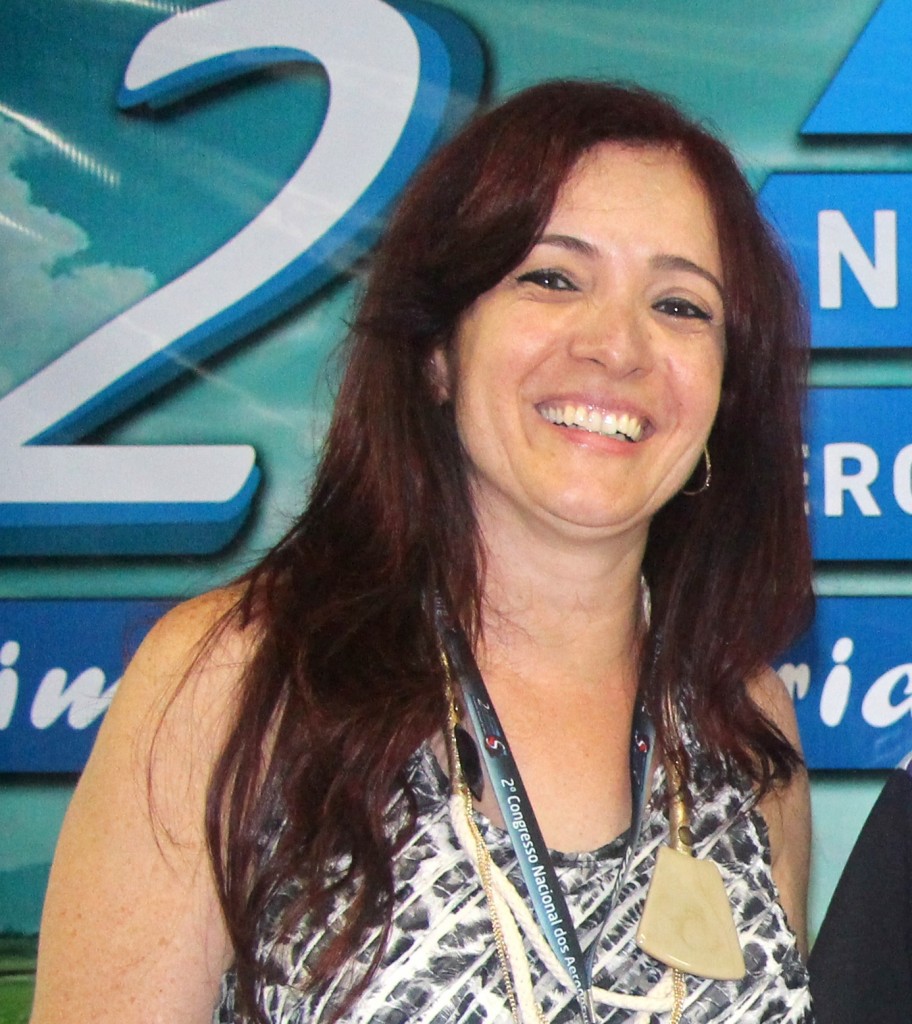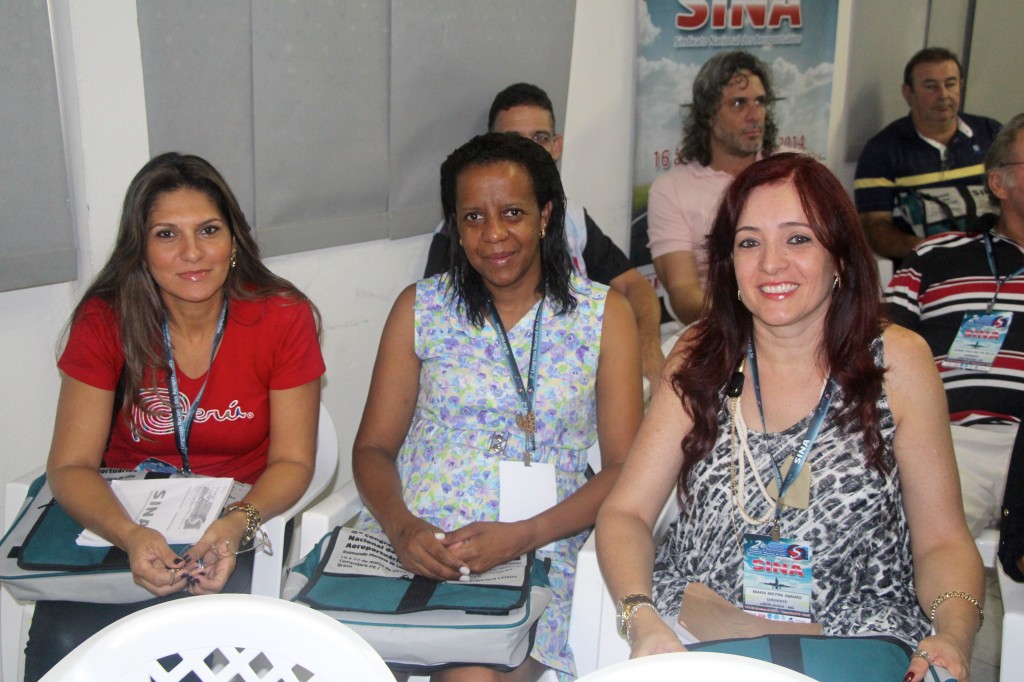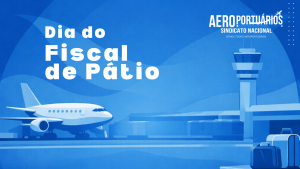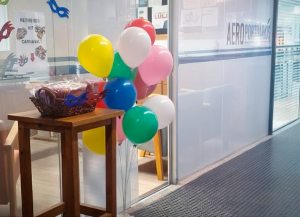8th March: Sina management advocates the creation of Women’s Secretariat
In celebration of International Women’s Day, the editorial team of SINA interviewed the Union Delegate of Uberlândia (MG), Mara Mairy Tavares, CNTTL Women’s Secretary and representative of the Union in the ITF Women’s Committee. Mara is a member the women airport workers group that is an active participant in the Union, fighting for the rights of people in the sector and for progress in gender relations.
The Sina management is advocating the creation of a Women’s Secretariat within the organization. This step is welcomed by the Union Leader. The establishment of this Secretariat requires approval in a meeting of the Congress of the entity and an amendment to the bylaws. Read the full interview below.
Women are now conquering spaces and rights in societies, however much needs to change culturally to ensure true equality. How do you view this matter in the current scenario and what, in your opinion, are the main challenges in this struggle?

We have seen much progress in the field of women’s rights over the years, but this has been a very slow process, if we take into consideration that the “feminist movement” had its beginnings in the Industrial Revolution way back in the XVIII century. There is still much to be done. Without doubt, the work of entities representing civil society, such as CUT, unions and national and international federations and confederations have played a fundamental role in this process. Broadly speaking, the main challenge to be overcome continues to be the same that we have faced from the beginning of time: chauvinism. We need to deconstruct the pre-conceived notion that women are the fragile sex and still need to be controlled by men. The other challenge that I consider more complex is to ensure that all women are aware of their capabilities, their strength, their potential and the importance of their role in society, as unfortunately we still have many women who are chauvinistic. To my mind, worse than having to deal with male chauvinism is having to deal with the chauvinistic attitudes of women towards their own sex. Last but not the least, it is important for the women’s rights movement to become homogenous and not adopt an elitist perspective.
In the aviation sector do you think that this equality has been achieved? What more needs to be done?
The aviation sector includes three categories: airport workers, aeronauts and air transport workers. Airport services contracts in public sector companies are done through public tender and the notices do not promote any distinction between sexes. What does happen though is that in some roles, owing to a question of culture and choice, women have minimal participation. The distinction comes later in appointments for managerial positions. In private companies, for airport staff the selection criteria are the same as the ones used in the market, that is to say that they are in keeping with the interests and profiles defined by the contracting company. Many a time, evaluation of the competence is accorded the least importance. We see the same situation when it comes to selection of aeronauts and air services staff, as this is the private sector. The only change which, in my opinion, has just started to take place is in the case of aeronauts. There has been a step forward in the case of pilots and co-pilots, which were positions that were only filled by men earlier. Today we see a presence, albeit small, of women. In the case of stewards there has been a reverse trend; these posts were earlier only occupied by women and today there is a significant appointment of males to these posts. However we need to progress a lot, as we are far from achieving equality yet.
In 2014, an Azul air transport worker was fired after being elected a union delegate of the Sindicato Nacional de Aeroviários. She was reinstated three months later by a judicial decision. In Ecuador, the pilot Jimena López, general secretary of SITA (Sindicato de Trabajadores de Aerolane), was also fired for being a union leader. The International Transport Workers’ Federation (ITF) launched a campaign in support of the union member. Given these events, how do you view the role of women in the union movement and the difficulties that they face as union members?
Participation of women in the union movement is increasing visibly. But there is also perhaps a much greater increase in the problems that we face in fulfilling our role as union members, as evidenced by these two situations, which are certainly not unique or isolated incidents. These are only examples of some of the forms of persecution that we are subjected to by companies and their capitalist and chauvinistic power. The dismissal of our comrade Jimena López is clearly an anti-union act that cannot be tolerated. She is a leader who is fighting tirelessly for the rights of her colleagues, both male and female. She is an example of the important role that we as women can play in our unions when we have the means and the opportunity to do so. We cannot highlight enough the role that ITF is playing in the aviation sector, as throughout the history of its existence it has always extended support and guidance to us, in the guarantee of our rights and conquest of new rights. However our difficulties begin within our own homes. We have to deal with our fathers, husbands and sons, since the union movement, generally speaking, especially in our branch of the Transport sector, is largely populated by men and this makes them insecure. Once we overcome this situation, we need to win our own space and the respect of our male colleagues within the entities that we represent. To add to all this is we still have to face pre-conceived notions, including in our own sector, regarding the union movement in general. It is not easy.
You are participating in the struggle to ensure equal rights for women in the airline sector, through ITF, CNTTL and Sina. How has this journey been and what are the actions taken by these entities in this struggle?
Firstly, the Sindicato Nacional dos Aeroportúarios, or Sina has radically changed its treatment of women since the beginning of the first term of President Francisco Lemos in 2008. Various women delegates were elected in the various airports that we represent, there have been more opportunities for action and training. It was thanks to this new management policy that we gained representation in the Confederação Nacional dos Trabalhadores em Transportes e Logística (CNTTL) and also in ITF. As for CNTTL, as women’s secretary, I am participating in a course on policy strengthening of women, organized in partnership with the National CUT and Unicamp. The objective is to review information on the position of women in the labour market as well as in society and through a research that is being undertaken, update this information. Based on this, we identified the critical points and developed actions in partnership with the organizations to minimise the difficulties faced by women. Also in a joint initiative of Sina and ITF, we are participating in a course on union education and training. Training is extremely important to strengthen our roles in the union movement. In this context, I do understand that CNTTL still has to make a lot of progress, as it is an entity where more than 80% of its affiliates are from the Road Transport sector and therefore it has a largely male participation. In this organization we still don’t have effective women oriented work.
What about the discussion regarding creating a Women’s Secretariat in Sina?
Besides all the support and space that we have achieved within Sina in the last few years, this year the Women’s Secretariat is being created to commemorate International Women’s Day. The information that I have is that all required legal steps are being taken to make this dream viable and transform it into a reality. For us women airport workers, the creation of this secretariat is the recognition and valuing of our work. This means a lot to us.
What is the message that you would give to women airport workers, aeronauts and air transport workers in Brazil and in the world?
In Brazil what I see is that besides many achievements, mainly with regard to parity, equality is still a farce in many ways. In terms of elected posts, for example, the law guarantees the participation of women. However the conditions under which men and women candidates fight elections are not the same. The majority of the parties “invite” women to be candidates only to complete the quota. Without doubt, there has been a historical step forward: we have had a woman President of the Republic for two consecutive terms. But when we analyze the rate of occupancy of these posts, in a country in which 50% of the population is female, the political scenario shows a lack of awareness among women themselves. If we were to give more opportunities to women candidates, this reality could be very different. In the organizations which I have had the opportunity to observe closely, this scenario repeats itself: women occupying posts merely to comply with the law and convey a “politically correct” message, which is unfortunate. The analysis that I have made of this situation in organizations is that we are not excluded because we are considered incompetent. It is very much to the contrary; our presence is still viewed as a threat in terms of loss of space and disputing of ideas. In spite of all these difficulties, I feel that what we must value is the progress made. All women, regardless of their position or nationality must focus on these advances, so that we can continue to construct more means to unite us and to strengthen our struggle. It is part of the essence of womanhood to fight and overcome challenges. All women are warriors by nature. Besides this, it is extremely important that young women participate and occupy more spaces. It is through them, their vitality and youth that we can make progress. We must understand that the women who historically have left their mark on our struggle are now getting older and we need more people to take the fight forward. None of the rights that we enjoy today were achieved without struggle, without people who dedicated their whole lives for years, many times even sacrificing their own lives. We must not forget this ever.









